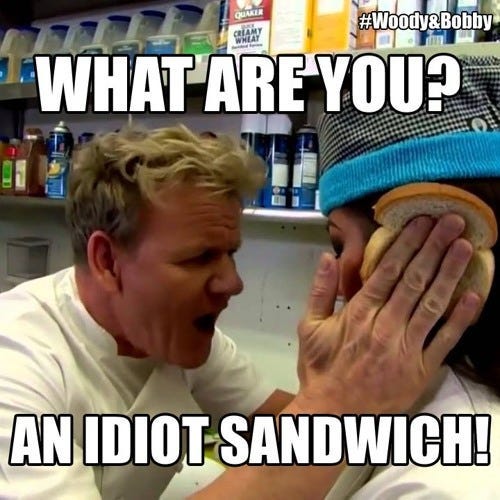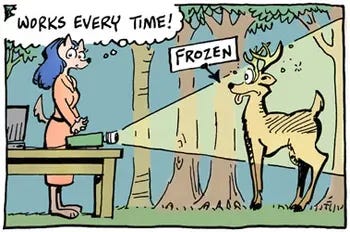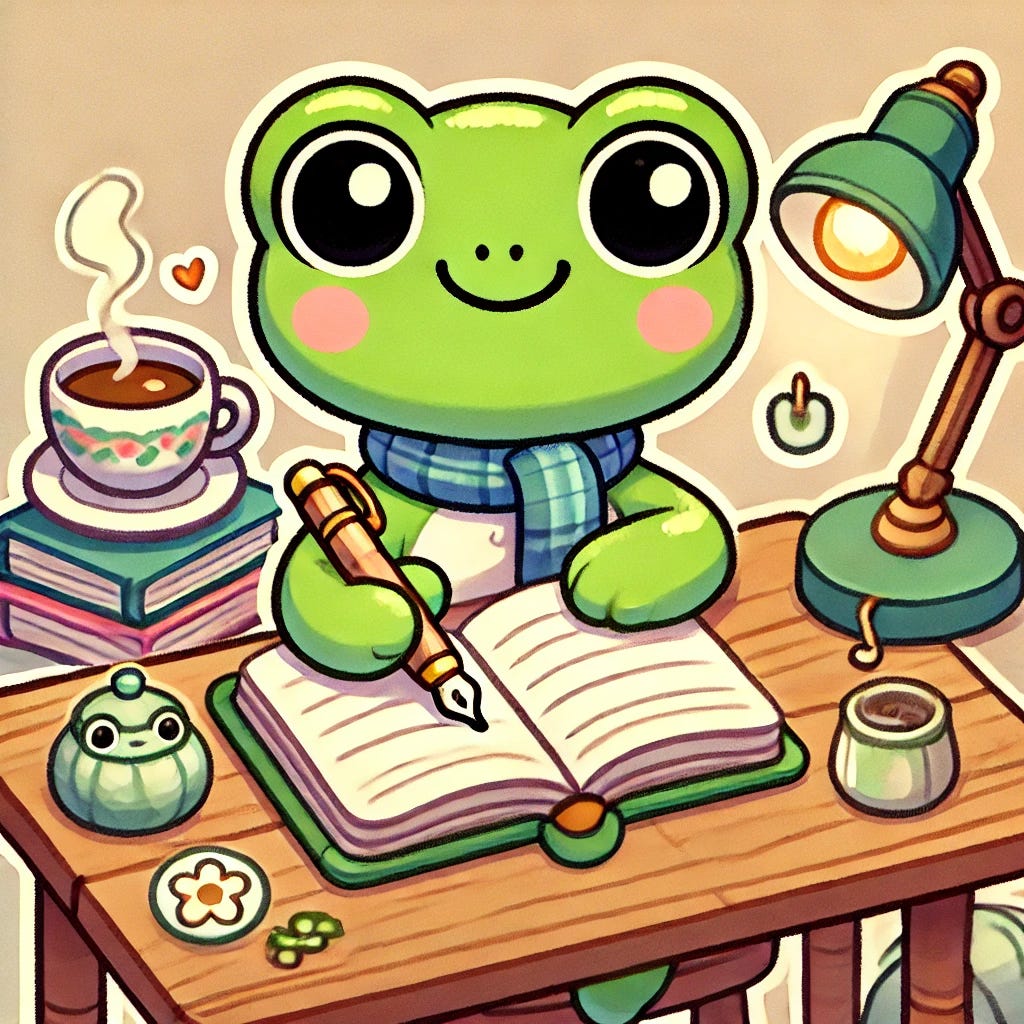Writing was the best thing I did in 2024
Memoizing through life's dynamic problems
The Free Year
Starting kindergarten early often made me the youngest in the room.I always saw this as a free gift, an extra year to explore life on my own terms. In 2024, I finally claimed that year as my 'free year', no school or work, just me embracing the autonomy to reflect, grow, and create.
Writing Biweekly in Public
The best thing I did this year was to log my experiences through a biweekly newsletter. While my original intention was simply to keep family and friends updated, I ended up benefiting the most from this discipline. Publishing blogs required me to focus on delivering cohesive ideas with clarity. I found it the ultimate test of my understanding on each topic I chose. Every two weeks, I picked one thing that was either:
An epiphany I needed to record for future reminders, or
An exciting discovery I couldn’t wait to share with others.
This practice significantly improved my self-awareness, helping me better understand my emotions, decision-making processes, repeated patterns and what energizes or drains me. I felt my life was moving forward instead of circling in the same place.
Here are the three turning points this year.
Noticing My Depression Pattern
In May, I wrote an article on stoicism:
It's a popular topic and I intentionally made it entertaining and approachable for readers. I shared my draft with a friend, expecting loads of compliments on my thoughtful attempt. Instead, he skimmed it for 10 seconds and gave me honest feedback:
Where is the table of contents?
The subheadings don’t seem to follow logically. I’m lost.
This paragraph is complicated and boring.Most readers will just skip it. (But I had been so proud of writing it😂)
It felt like I had walked into a Gordon Ramsay show for writing. I began to question everything. Were all my efforts worthwhile? Should I keep writing or was I wasting my precious free year?
I flipped over one piece of feedback while writing about stoicism. Feeling the irony, I was obligated to live by my preachings first. Setting aside my disappointment, I reconsidered his feedback. Ok. In hindsight, It was sort of valid and relatively simple to act on. By improving those points, I could make my essay clearer for readers.
Still, without positive feedback, it’s hard to stay motivated. Should I keep going even if not many people are reading? Maybe. I have a track record of giving up early, so maybe I could try something different this time: how about I try to publish at least five essays before giving up? With clear action items, I had no reason to linger in sadness. I recorded this process in the following essays:
This experience was novel to me: I can just stop being sad and move on.
It sounds obvious, but in my previous life, being sad was a recurring theme. In some ways, it was my comfort zone. If I didn’t get good grades, I’d be sad. If I gained weight, I’d be sad. If I felt sad, I’d be even sadder. Nobody likes being sad, but it has become a habit for me, learned helplessness, perhaps?
Stoicism showed me a new way to handle negative emotions. Instead of passively indulging in despair, I started seeing sadness as a signal to identify and solve a problem.
A New Script for My Inner Bully
Change didn’t come easily, of course. The second test came soon after.
In June, I developed lower back pain that lasted for two months. Negative thoughts overwhelmed me: “You’re useless. You didn’t finish that personal project on time. You can’t even attend social events to meet new friends. You can’t go to the gym and are losing muscle.”
The voice was always there, creeping in during my lowest points, growing louder until it felt like the only thing I could hear.
Its favorite topic? My body image. It whispered that losing 20 pounds would make life easier and happier. For years, I chased that promise with diet plans, avoiding sugar and carbs. They worked temporarily but what was lost inevitably came back. After repeated failures, I finally realized these methods just weren’t sustainable.
The truth is, I like sweets. I can’t NOT eat bread or desserts. Physical shape, I realized, is determined largely by genes and lifestyle. Unless I changed my lifestyle permanently, I wouldn’t see lasting results.
Despite all the voice’s discouraging words, I found it kind of amusing and talked back: Alright, I hear you. You’ve been saying the same thing over and over again. Are you capable of saying something different? Maybe something positive or nice?
It stiffened, as if kindness was foreign to its nature. Then, after a moment of hesitation, it managed: “you’re the prettiest girl in the world.”
Kind of awkward, but it was a good start. I was sure it would get used to saying more good things. I recorded the reflections in this article:
Climbing Out of The Trap of Decision Paralysis
These reflections helped me escape the gravity of depression. I noticed that the time I spent in 'happy mood' and having 'happy thoughts' has increased compared to before.
With this renewed mindset, I shifted my focus back to coding. Despite studying Computer Science and having some industry experience as a software engineer, I hadn’t built much for my own interests. A long-term regret I wanted to address. So I started learning full-stack skills through The Odin Project.
During self-study, I discovered that building things was far more fun and motivating than passive reading. As I gained confidence, I began building an app for my parents. It was exciting, until I got stuck.
A small design decision between two UX options derailed me for two days. I was determined to make the “best” choice, but instead I kept switching back and forth. The worst part of decision paralysis wasn’t the project delay but the mental exhaustion it caused. In my own words:
Faced with uncertainty, the human brain's survival instinct imagines every negative possibility. My energy was consumed by worry and anxiety, spiraling into self-doubt and frustration. Overthinking turned a simple choice into a trap of my own making."
I eventually made a decision after listing pros and cons. Through this, I learned that: Right decision > Wrong decision > No decision.
I recorded this learning here: https://chenshuz.substack.com/p/decision-paralysis
Decision paralysis is probably the number one cause that decrements my joy in building things. It’s the first time I root caused and named this pervasive frustration in my daily decision-making processes.
Now I still hesitate over decisions—whether to move to New York, what job to pursue, or even what to eat for dinner. Hesitation is part of who I am. But every time it happens, I can recognize it and recall this experience and take intentional steps toward making a decision. With practice, I hope to become more decisive in the future.
Memoizing Life
These are the major turning points of my 9-month writing journey. Much like how memoization in dynamic programming stores solutions to smaller problems to avoid duplicate computations, writing works the same way for me. Each log became a stored solution, helping me navigate recurring challenges with less mental strain. Instead of getting stuck in the same emotions or decisions, I would revisit my previous reflections to find clarity and direction. Writing helped me optimize my responses to life’s challenges, just as memoization optimizes computations in code. As I step into the next chapter, I will continue writing, reflecting, and solving life’s dynamic problems. One memoized insight at a time.







this is a banger! you’re inspiring me to write again 🔥